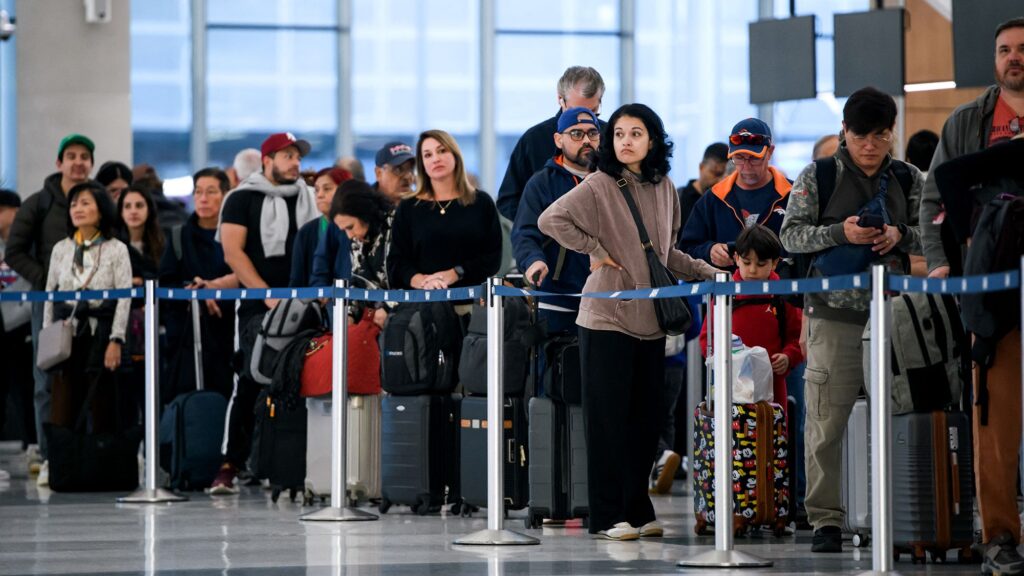Millions of Americans planning to travel by air this month could face significant disruptions if the ongoing government shutdown continues into Friday. The Federal Aviation Administration (FAA) has prepared to scale back operations at 40 airports nationwide due to a growing shortage of essential staff, according to an FAA official with direct knowledge of the situation.
Among the airports on the preliminary list are the FAA’s “Core 30” — the busiest hubs in the country — including New York City’s three major airports, along with major facilities in Atlanta, Boston, Chicago, Dallas, Denver, Honolulu, Los Angeles, Las Vegas, Miami, Phoenix, Seattle, and Washington, D.C. An additional ten airports across the United States are expected to be impacted by reduced traffic capacity.
FAA Administrator Bryan Bedford confirmed that services would be adjusted to limit operations in high-volume markets. “We’re going to ask airlines to work with us collaboratively to reduce their schedules,” Bedford said, noting that traffic at the affected airports may be reduced by roughly 10%.
Airlines reportedly received notification of the plan only about an hour before its announcement, according to industry sources. In a statement, Airlines for America, the national trade association, said it is working closely with the federal government to understand the new mandate and “strive to mitigate impacts to passengers and shippers.”
What Travelers Should Do
With the possibility of cancellations and delays increasing, some airline executives are urging travelers to prepare backup plans.
Frontier Airlines CEO Barry Biffle advised passengers to consider booking an additional ticket on another airline if their travel plans are time-sensitive.
“Don’t book a basic economy ticket,” Biffle warned. “Choose a fare that allows changes or credits. If your flight is canceled, your chances of being stranded are high.”
Delta Air Lines and United Airlines have issued travel waivers, allowing passengers to reschedule flights without penalty.
Experts also recommend booking directly through airlines rather than third-party websites for easier resolution if disruptions occur, and avoiding itineraries with layovers, as each connection increases the risk of missed flights.
What’s Causing the Disruptions?
The government shutdown, which began on October 1, has halted paychecks for thousands of federal workers. Air traffic controllers and Transportation Security Administration (TSA) screeners are classified as essential personnel, requiring them to work despite not being paid.
However, many have taken on temporary jobs to cover expenses, leading to staffing shortages across multiple FAA facilities. A recent CNN analysis reported more than 400 staffing gaps since the shutdown began.
As personnel shortages grow, the risk of delays, reduced flight capacity, and longer security lines increases.
Travelers are advised to monitor airline updates closely and plan ahead as uncertainty continues.
Stay updated for further developments as the situation evolves.

